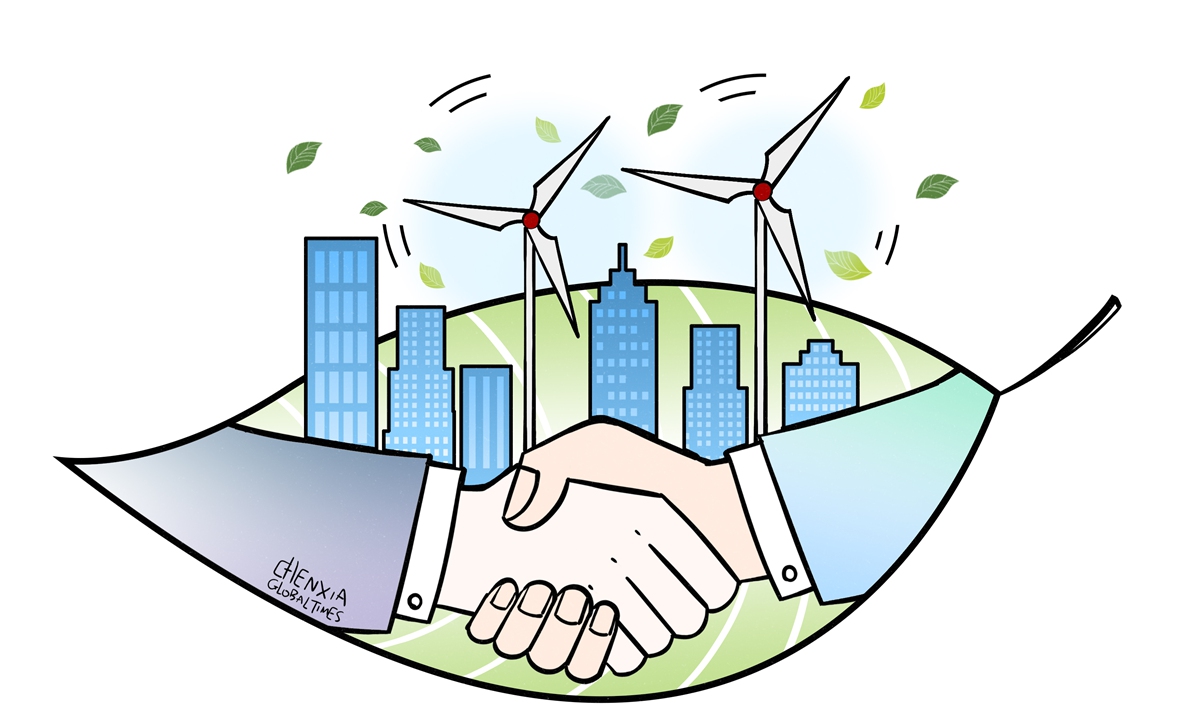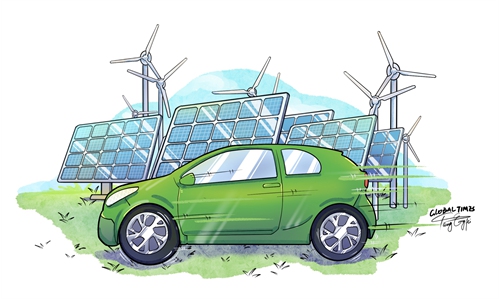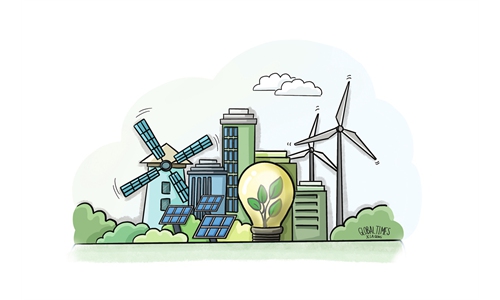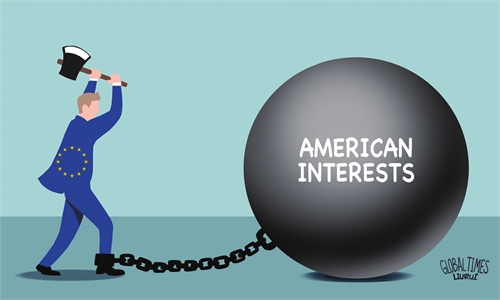
Illustration: Chen Xia/Global Times
Even though the US has frantically increased its attacks on China in recent months, rational voices underlining China's role as a key partner have emerged in America's European allies. The latest example is remarks from Liesje Schreinemacher, the Dutch minister for foreign trade and development cooperation, who was quoted in a Financial Times report as saying that Europe's green transition will be impossible without China.The minister reportedly stated that the Netherlands has a "strong trade relationship with China" and that "we need each other when it comes to making our economies more sustainable and the green transition."
These comments were made against the backdrop of recent statements by the leaders of the Group of Seven, who indicated that they are not "decoupling" from China but rather "de-risking." While the term "de-risking" may be more acceptable to America's European allies, many analysts have pointed out that it is simply a new variation of the "decoupling" theory, which could have serious consequences for global supply chains. In fact, the "de-risking" push itself has become a potential risk point for the European economy. Given the current economic uncertainty and ongoing energy crisis, it is important for European political leaders to clearly state their opposition to economic "de-risking" and to remain realistic and pragmatic in their approach toward China.
Currently, some European countries are working on an economic reform of their energy market to shield citizens from price spikes. In this process, the current energy transition - the shift from fossil fuels such as oil and coal to sustainable energy sources such as wind and solar - is accelerating. The transition to clean energy offers both challenges and opportunities for the European economy. We should aim to maximize the benefits brought by Europe's energy transition, rather than letting it be negatively influenced by the "de-risking" push.
China and Europe have solid common ground in green energy cooperation. As the two major economies and important renewable energy markets in the world, China and the EU enjoy great industry complementarity in this regard. In 2022, China exported 86.6 GW of photovoltaic modules to Europe, up 112 percent year-on-year, accounting for 56 percent of China's photovoltaic module exports.
In addition, China and Europe have made significant progress in major green energy cooperation projects in recent years. The Paper.cn reported in April that Chinese energy battery giant, CATL's Hungarian factory, will officially commence construction this summer and undergo trial operation next year, with official production set for 2025. Once in production, the company is expected to leverage the deep integration of the European auto industry chain to help transform and upgrade the German and European auto industry. According to media reports, Mercedes-Benz, Volkswagen, and other companies have expressed their interest in becoming partners of CATL's European factories.
With ongoing geopolitical conflicts, the energy industry will continue to experience impacts on supply chains, and competition in international new energy-related industries will become increasingly fierce. If Europe wants to accelerate its energy transformation process, it needs to seek practical cooperation, and China is its best potential partner. Actively promoting practical cooperation and more projects to land will help both sides accelerate energy transition and fully release their economic potential.
In the context of the EU's continued expansion of its green transformation goals, China's advantages in the supply of renewable energy products along the entire industrial chain will help it reduce costs and improve efficiency.
Similarly, European companies with obvious advantages in fields such as green hydrogen energy will also find more opportunities in the Chinese market as the country unwaveringly promotes energy transition.
However, if Europe is affected by the "de-risking" rhetoric in the future and falls into the geopolitical trap dug by the US, it will only delay Europe's energy transition process and cause unnecessary losses to related European industries and companies.
The author is a reporter with the Global Times. bizopinion@globaltimes.com.cn



